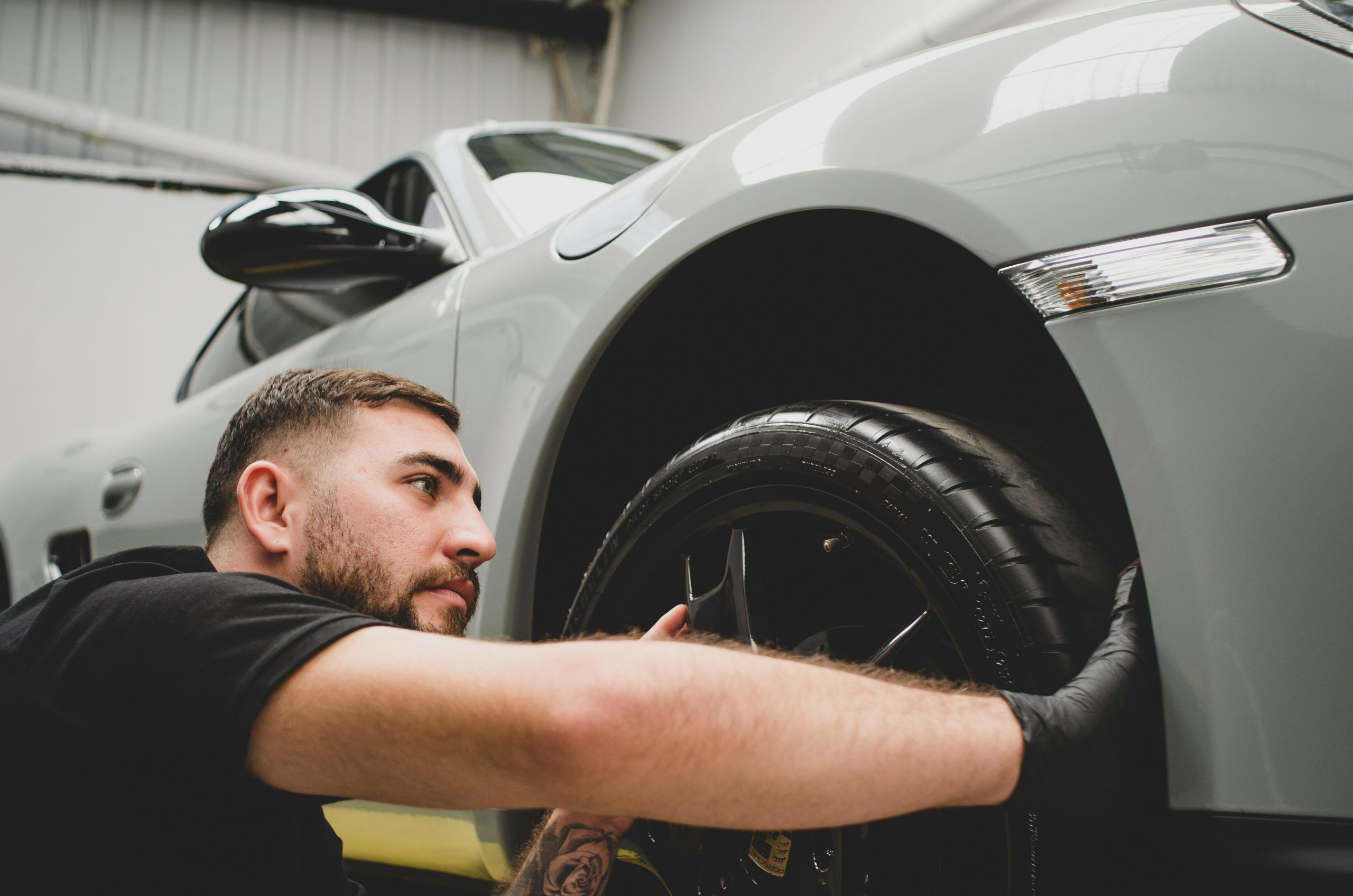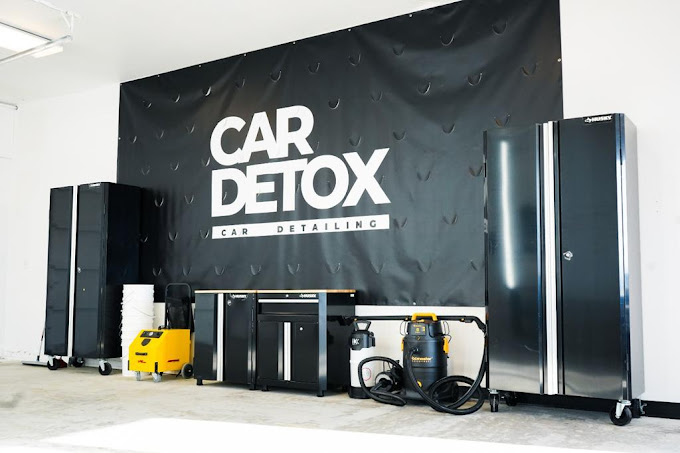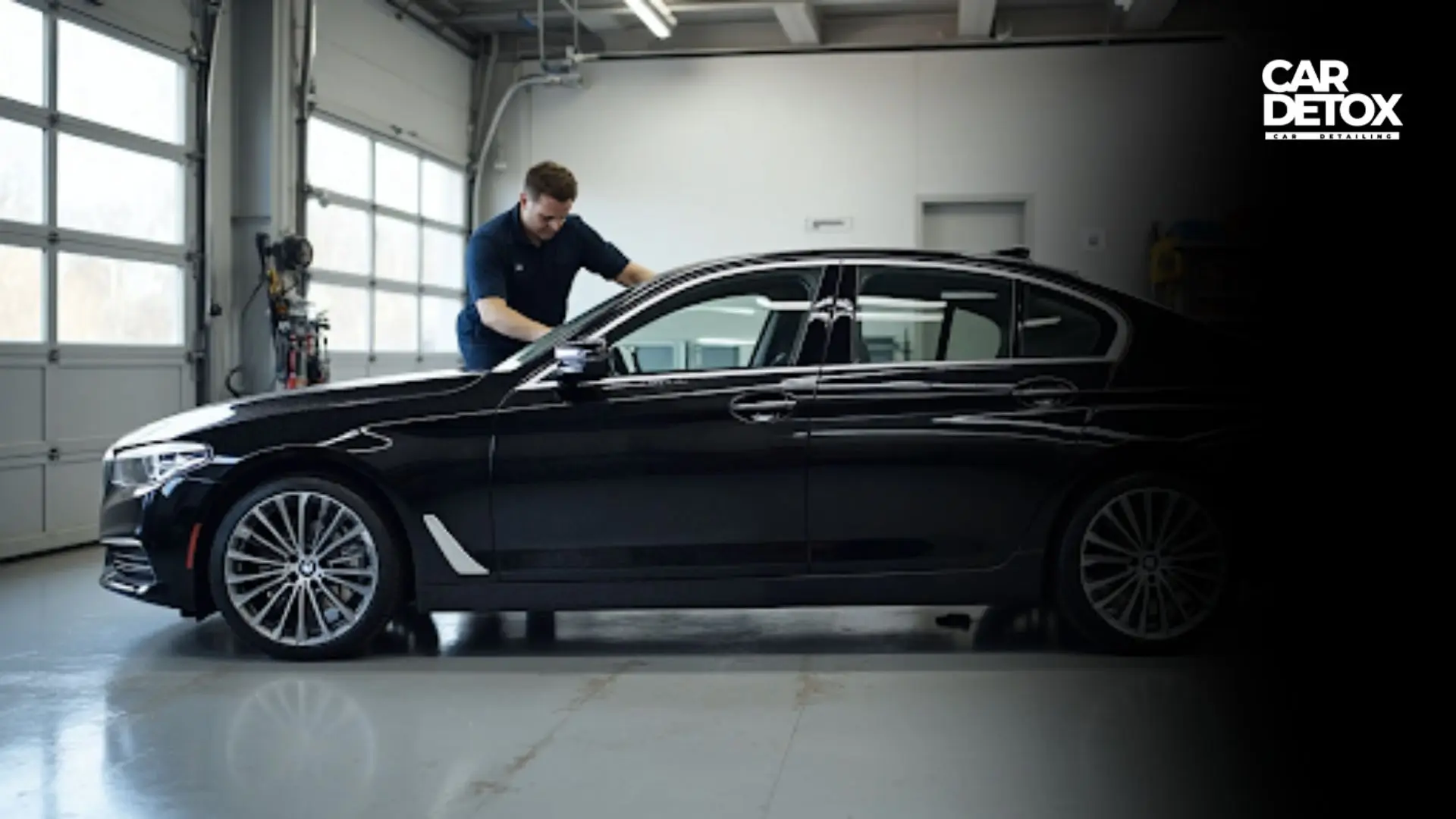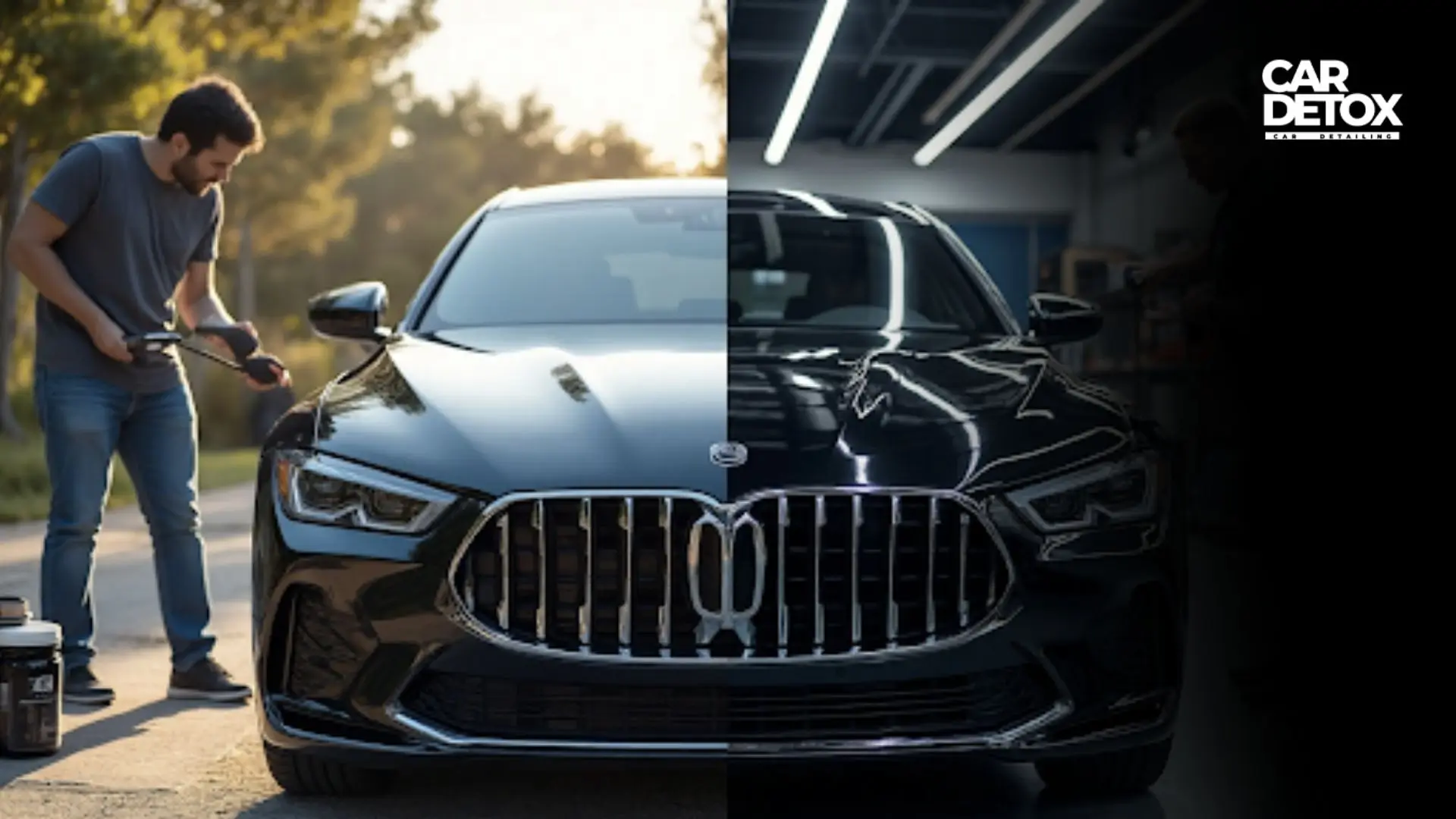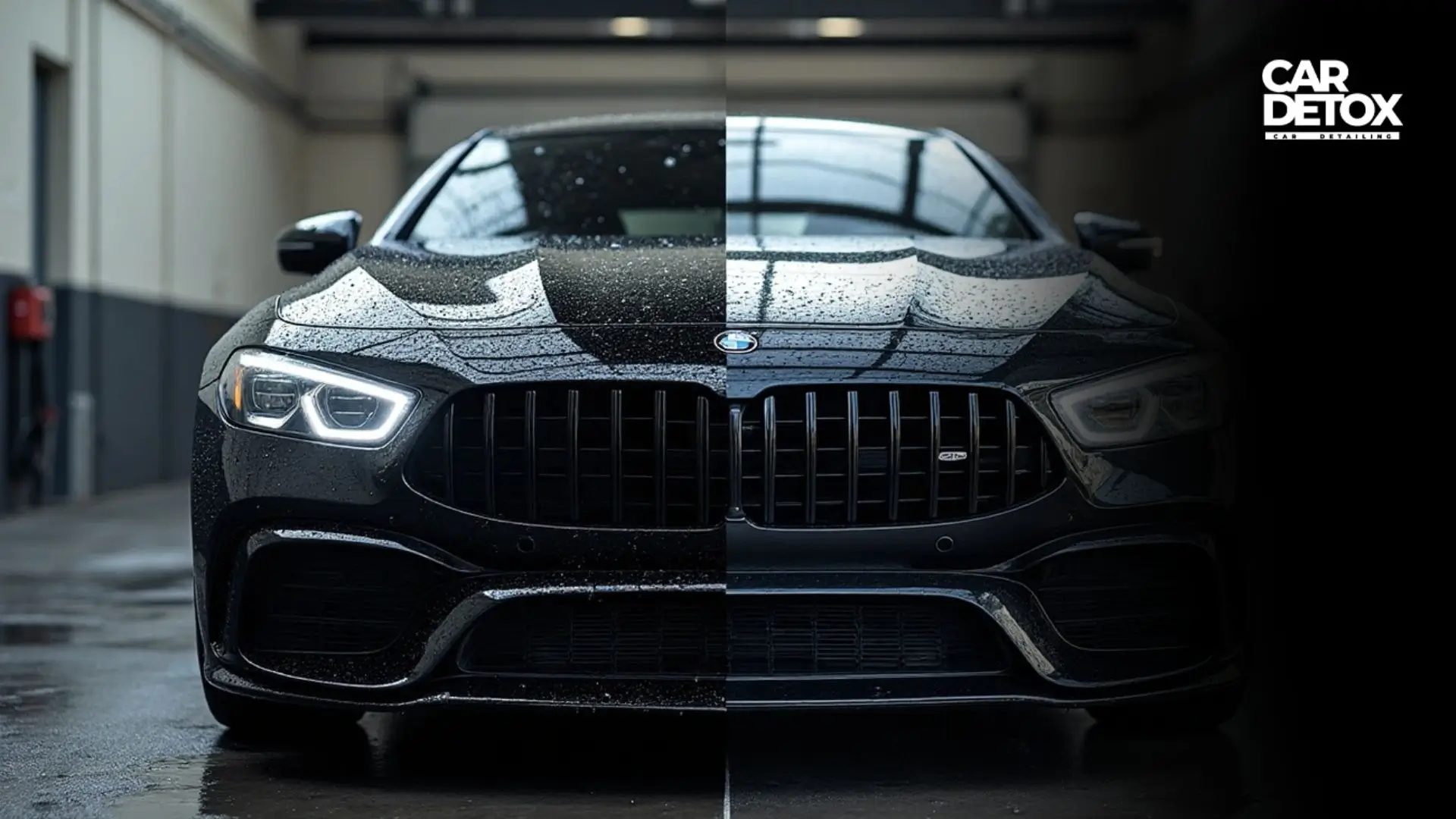- Understanding Car Detailing
- Can Car Detailing Remove Scratches?
- Limitations of Car Detailing in Scratch Removal
- Maintaining Your Car Post-Detailing
- Types of Scratches and Detailing Techniques
- Scratch Removal Techniques in Detailing
- Techniques Used in Car Detailing for Minimizing Scratches
- Conclusion
- Frequently Asked Questions
The question "Do car washes scratch your car?" stirs considerable debate among vehicle owners, with concerns mainly focusing on tunnel-type automatic car washes with rotating brushes known to cause scratches due to trapped grit particles. In contrast, hand washing and professional car washes offer a safer alternative, minimizing the risk of paint scratches and maintaining the vehicle's aesthetic appeal.
If we go into the world of car detailing, the effects on a vehicle's finish can differ. For example, even though hand washing methods are usually advertised as being gentle, they might still introduce deep scratches - this is in contrast with how little impact professional services have when it comes to your car's exterior. This article explores car detailing details, focusing on best methods for preventing scratches and how different ways of washing keep your vehicle shiny like it's in a showroom.
Understanding Car Detailing
Car detailing is a very careful job that includes cleaning and fixing the inside as well as outside parts of a car to keep it in good condition. Let's look at what exactly car detailing means:
Exterior Car Detailing
- Cleaning and washing: Clean and dry the car by hand, using special equipment to softly get rid of dirt and impurities.
- Claying: Using a clay bar treatment, we can eliminate dirt that is stuck in the paint and cannot be cleaned off with regular washing. This helps to ready the surface for polish and wax.
- Polishing: This process involves reducing minor scratches and swirls to regain the shine in your car's paint.
- Waxing: This is the last part, where a sealant or wax can be put on the car paint. It makes it more shiny and helps to protect against things from outside.
Interior Car Detailing
- Deep Cleaning: All carpets, mats and seats are vacuumed and shampooed to get rid of dirt and spots. Conditioning is given to the leather surfaces.
- Detailing Surfaces: the dashboard, console, doors and glass. They wipe off all dust and fingerprints from these areas making sure that every part inside is as clean as a whistle.
- Deep Cleaning: All carpets, mats and seats are vacuumed and shampooed to get rid of dirt and spots. Conditioning is given to the leather and plastic surfaces.
- Detailing Surfaces: the dashboard, console, door jambs and glass. They wipe off all dust and fingerprints from these areas making sure that every part inside is as clean as a whistle.
Additional Services
- Engine Detailing: Cleaning the engine bay can improve performance and extend the engine's life, a service not typically included in regular car washes.
- Headlight Restoration: This service ensures headlights are clear of oxidation and grime, which enhances the vehicle's appearance and safety.
It is suggested to do regular detailing every 4-6 months. This not only keeps the look of a vehicle fresh, but also helps in maintaining its life and worth when selling it later on. Detailing by professionals can guarantee that your car gets thorough care using good products and methods which protect your investment.
Can Car Detailing Remove Scratches?
Car detailing can be a beneficial approach to managing surface imperfections on your vehicle, particularly when it comes to light and superficial scratches. Here’s how different techniques address scratch removal:
Superficial Clear Coat Scratches:
- Polishing and Buffing: This method can remove or significantly minimize clear coat scratches by gently smoothing out the surface.
- Compounding: Applying a compound followed by polishing can effectively treat light scratches and swirl marks, making them less visible or completely removing them.
Moderate Paint Scratches:
- Touch-Up Paint: For scratches that are deeper but not severe, touch-up paint can be used to fill the scratch, which is then leveled with polishing to blend with the surrounding area.
- Paint Correction Techniques: These are used to diminish the visibility of moderate scratches. However, complete removal isn’t always possible.
Deep Scratches:
- Professional Repair: Deeper scratches that reach the primer or metal usually require professional repair techniques beyond standard detailing capabilities.
Regular detailing maintenance, including careful washing and polishing, helps preserve the vehicle's clear coat and appearance, ensuring longevity and a pristine look.
Limitations of Car Detailing in Scratch Removal
While car detailing can address minor imperfections and enhance a vehicle's appearance, it has limitations when it comes to more severe types of damage. Here are some of the constraints of car detailing in scratch removal:
- Deep Scratches: If the scratch has penetrated through the clear coat and into the paint or metal, detailing techniques like polishing and waxing are insufficient. These types of scratches often require filling, repainting, and possibly reapplication of the clear coat to restore the vehicle's finish.
- Extensive Surface Damage: Larger areas of damage, visibility of bare metal or primer, or complex paint colors and finishes go beyond the scope of standard detailing. Such damage typically necessitates professional repair involving advanced techniques like wet sanding and repainting.
- Professional Consultation Recommended: For significant scratches or damage, consulting with professionals who specialize in auto body repair is crucial. They can provide appropriate solutions like touch-up paint or complete repainting, ensuring that repairs are done correctly and match the original finish of the car.
These points underscore the importance of assessing the level of damage and considering professional repair for deep or extensive scratches, as car detailing might not be a comprehensive solution in such cases.
Maintaining Your Car Post-Detailing
To maintain the pristine condition of your car post-detailing, incorporating regular maintenance routines is essential. Here are some effective strategies:
- Regular Cleaning and Protection: Wash your vehicle weekly using gentle car wash soap and a soft sponge or microfiber cloth to remove accumulated dirt and grime. After washing, apply a high-quality paint sealant or wax to shield the paint from UV rays and environmental contaminants.
- Mindful Usage and Storage: Avoid parking in high-traffic areas to reduce the risk of scratches and utilize covered parking or invest in a car cover for added protection. Keeping your car stored indoors can significantly extend the life of the detailing.
- Immediate Care for Spills and Dirt: Clean any interior messes promptly and vacuum loose dirt or crumbs off the seats and floors regularly to maintain the interior's cleanliness. Refrain from eating or drinking in the car to prevent spills and crumbs, which can attract more dirt and potentially damage the detailing
By following these guidelines, you can help preserve the detailing of your car, ensuring it continues to look its best for a longer period.
Types of Scratches and Detailing Techniques
Understanding the various types of scratches that can affect a vehicle's surface and the appropriate detailing techniques to address them is crucial for maintaining the aesthetic and structural integrity of the car. Here's a breakdown of common scratches and their remedial methods:
- Clear Coat Scratches: Typically caused by everyday wear, such as dusting or washing, these superficial scratches only affect the top clear coat layer. They can generally be remedied with a gentle wash followed by waxing to restore the shine.
- Paint Scratches: More severe than clear coat scratches, these penetrate through the clear coat to the paint layer. Repairing these scratches often involves sanding the affected area with fine-grit sandpaper, applying new paint, and sealing with a clear coat to match the surrounding area.
- Primer Scratches: The most severe, these scratches reach down to the primer or metal layer. Addressing primer scratches requires comprehensive steps including sanding, applying primer, repainting, and finally reapplying a clear coat to protect the new paint.
Each type of scratch requires a specific approach to ensure the repair blends seamlessly with the original paintwork, maintaining the vehicle's appearance and value.
Scratch Removal Techniques in Detailing
The process of removing scratches from a car's surface involves several steps, each crucial for achieving a flawless finish. Here's a detailed look at the techniques used in scratch removal during car detailing:
1. Initial Cleaning and Examination:
The vehicle is first thoroughly cleaned and then clay-treated to remove any surface contaminants. The type of scratch is carefully examined to determine the appropriate removal technique.
2. Techniques Based on Scratch Depth:
- Clear Coat Scratches: Hand or machine polishing is employed to minimize these superficial scratches. For deeper ones, rounding techniques are used to blend the scratch into the surrounding area.
- Primer Scratches: These require intensive treatment using high-speed buffing machines and specialized leveling compounds to correct the damage.
3. DIY Scratch Removal Options:
- Toothpaste: Applied with a microfiber towel in circular motions to smooth out shallow scratches, followed by rinsing and drying.
- Baking Soda Paste: A homemade paste applied in circular motions, then rinsed and dried, effectively minimizes visibility of scratches.
- Vinegar Solution: Used to rub the scratch with a soaked cloth, then rinsed and dried.
- Clear Nail Polish: Applied to deep scratches to fill them, allowed to dry, and then excess buffed off.
4. Professional Products and Techniques:
- Commercial Scratch Removal Kits: These are available at auto supply stores and include all necessary instructions for proper application.
- Paint Correction: This involves abrasive compounds and polishes applied with buffers and polishers to remove a thin layer of clear coat or paint, requiring skilled application for best results.
Each method is selected based on the scratch's severity and the car's finish, ensuring both effectiveness in scratch removal and preservation of the vehicle's aesthetic.
Techniques Used in Car Detailing for Minimizing Scratches
Minimizing scratches during car detailing involves various techniques and products designed to protect the vehicle's paint while enhancing its appearance. Here are some effective methods:
- Paint Protection Film (PPF): This acts as a sacrificial barrier on your car's exterior, absorbing minor damages such as scratches, stone chips, and bug splatters, thereby safeguarding the original paint beneath.
- Ceramic Coatings: These coatings add a protective layer over your car's paint, which not only helps resist light scratches and swirl marks but also makes the car easier to clean. This is due to its hydrophobic properties that repel water and dirt.
- Vinyl Wrap and Window Tinting: Applying vinyl wraps and tinting car windows can protect the paint from UV rays and environmental pollutants. This reduces the risk of paint fading and oxidation, which are common precursors to scratching.
It's important to note that DIY methods like scratch removal kits and using toothpaste might not be suitable for all types of scratches or car paints. These methods can sometimes cause more harm than good, depending on the scratch depth and paint quality.
Conclusion
After looking and talking about it, this article has studied how car washes and detailing can impact paint finishes. It stresses the need to select appropriate methods for preventing or reducing scratches. From dangers related to automatic tunnel washes to advantages of professional detailing services, it's evident that keeping a car's beauty needs both understanding and carefulness. The range of detailing techniques - from simple handwashing methods all the way up through complicated processes such as applying paint protection films and ceramic coatings - shows the difference in care levels available for preserving a vehicle’s original look while improving its lifespan and selling price.
Knowing about the kinds of scratches that might influence a car and the detailed methods to fix them highlights an important part of car upkeep. Frequent, expert detailing aids in eliminating small flaws but it also guards against forthcoming harm. For people who are looking to maintain or recover their vehicle's shine while ensuring top-level care, choosing professional detailing services can be crucial. If you're seeking high-quality car detailing services in Tualatin, feel free to contact us for expert assistance and advice tailored to your vehicle's needs.
Frequently Asked Questions
While some car washes are designed to be gentle on your vehicle, others may pose a risk to your paintwork. Automatic car washes, in particular, can cause scratches if proper care is not taken post-wash, such as thoroughly drying your car to prevent water spots that can scratch the paint surface.
Detailing can effectively reduce the visibility of minor to moderate scratches and enhance the overall appearance of your car. However, for deeper scratches that expose the primer or metal, or for more severe damage, it is advisable to seek professional bumper repair services.
Many brushes available for car detailing carry a significant risk of scratching or damaging the surface of your car. It's essential to choose high-quality, soft-bristled brushes to minimize this risk.
Yes, it is often possible to buff out scratches caused by car washes, especially if they are superficial. However, deeper scratches might require more intensive repair techniques.
Read More On
1) Is Ceramic Coating Better Than Wax?
2) How long does ceramic coating take to cure?
Our Popular Services
Car Detailing Services | Ceramic Coating Services | Pet Hair Removal Tualatin
Revive your ride anytime, anywhere
Schedule AppointmentQuestions? Call us now!

